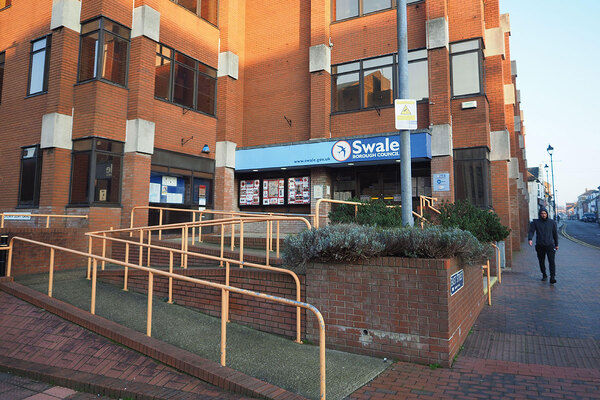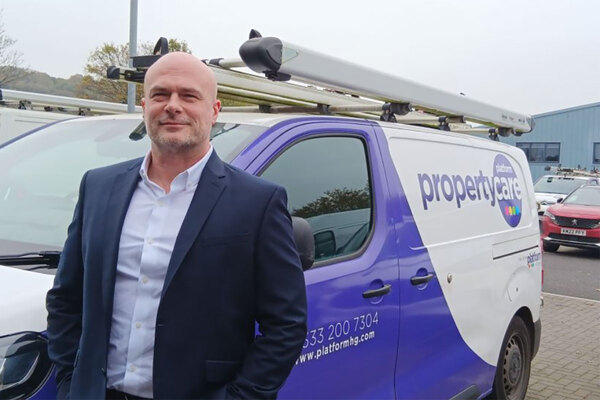You are viewing 1 of your 1 free articles
The Week in Housing: 24 hours for emergency repairs
The Week in Housing is our weekly newsletter, rounding up the most important headlines for housing professionals. Sign up below to get it direct to your inbox every Friday

Good afternoon.
24 hours. That’s how long social landlords will have to complete emergency repairs once identified under the proposals set out for Awaab’s Law.
A consultation, launched by the Department for Levelling Up, Housing and Communities (DLUHC) this week, proposes new legal requirements for landlords to investigate hazards within 14 days.
Once a hazard is identified they must start fixing it within a further seven days, and make emergency repairs within 24 hours.
Emergency repairs are defined in the consultation document as those that present a “significant and imminent risk of harm” and include gas leaks, broken boilers and electrical hazards such as exposed wires.
The consultation comes six months after the Social Housing (Regulation) Act became law.
Awaab’s Law, named after two-year-old Awaab Ishak, who died as a direct result of prolonged exposure to mould in a Rochdale Boroughwide Housing (RBH) flat, was an amendment to the act.
Despite repeated pleas for help from Awaab’s family, RBH failed to take appropriate action to fix the issues.
As the government outlined this approach, the Greater Manchester Combined Authority (GMCA) revealed plans for its own new Awaab-inspired scheme.
The GMCA expects a “large proportion” of social landlords in Greater Manchester to sign a new charter aimed at boosting housing standards.
A six-week consultation on how the voluntary Good Landlord Charter will operate was launched by Greater Manchester mayor Andy Burnham.
The scheme will involve private and social landlords applying to become a member by showing they are meeting “legal minimum standards” for renting homes.
Mr Burnham said the idea was partly initiated by the “devastating conclusions” from the inquest of Awaab Ishak.
No one in the sector will argue that these reforms are not necessary to drive up standards, but the question remains how deliverable they will be due to cost and capacity at a time of competing financial pressures.
Local authorities are particularly stretched at the moment, with reports suggesting that one in five English councils are at risk of bankruptcy.
Rising costs have meant that one London council, which owns around 10,500 council homes, is carrying out emergency repairs only amid high demand.
Enfield Council said that for a “short period” it will prioritise emergency issues, while non-emergency repairs will be “programmed for delivery at a future date”.
While Enfield’s plan to prioritise emergency repairs might be compatible with what is set out in Awaab’s Law, to make the proposals work, landlords are going to put a lot more resources into preventive maintenance to stop problems becoming life threatening in the first place.
But where is the money going to come from? Ultimately from the government’s other big announcement, the rent settlement for 2024-25, one it was accused of trying to sneak out.
One resident group told Inside Housing it believes the government was hoping the news of a 7.7% rent cap for 2024-25 would go unnoticed because it is an election year.
This will apply to rents for new and existing tenants from April 2024 this year.
The Social Housing Action Campaign said: “The low-key publicity surrounding this statement no doubt reflects the government’s recognition that sharply hiking rents for the poorest and most vulnerable tenants in Britain is not a good look in an election year, and are hoping that it will go largely unnoticed.”
However, the Chartered Institute of Housing backed the return to an inflation-linked hike in social rents, saying it was necessary for landlords to invest in new and existing stock.
Residents would be right to feel aggrieved by the increase, but landlords are being asked to do a lot with this income. Something’s got to give.
In a move that is hoped to have an impact on the quality of new build developments, the Housing Ombudsman and the New Homes Ombudsman signed a memorandum of understanding (MoU) setting out how they will work with each other.
The MoU is based on the relevant provisions in the Building Safety Act 2022 and the Housing Act 1996, while recognising that the New Homes Ombudsman is currently a voluntary scheme.
It sets out the functions of each organisation and describes the arrangements for co-operation and communication between the two bodies, and also clarifies any potential overlap in the jurisdiction of each.
Given the number of evacuations due to building safety issues over the past few months, both watchdogs look set to have their hands full.
What the sector certainly can’t afford is any other sort of crisis, but news of concrete-related construction issues have also persisted into the New Year.
Inside Housing revealed how a Southern Housing tower block that was evacuated last year due to safety concerns previously had work completed to reinforce the building before the current issues were found.
The 78,000-home landlord decanted 60 flats in November from a building in Woking after an investigation raised concerns about the type of concrete used in its construction.
Around 100 residents from the Centrium 1 block at Station Approach in Woking were evacuated while an investigation was conducted to assess the materials used in the construction of the property, with a focus on the composition of the concrete.
Orbit confirmed that it is investigating several blocks built by the same developer in Hastings after it was forced to evacuate 17 families from one building in the run-up to Christmas.
The landlord took the decision to evacuate after a fire service inspection identified a number of serious fire safety issues.
The incident was brought to the attention of Inside Housing after a concerned staff member highlighted potentially hundreds of other flats in Hastings that have been built by the same developer.
This concerned employee said that staff at the landlord had already raised issues about these properties with Orbit over the past few years.
At the same time, an investigation into the large fire at a three-storey housing association block in Hampshire that caused severe damage and left residents homeless has found that the fire was an accident.
More than 80 firefighters from across the county tackled the blaze in May last year at the Oakridge Road housing development in north Basingstoke, which is owned by Vivid.
No one was injured in the fire but 12 flats in the nine-block complex were badly damaged and large sections of the building’s roof were completely destroyed.
In an update to Inside Housing, Hampshire and Isle of Wight Fire and Rescue Service said that its investigation teams have determined the fire was caused by an electrical fault.
Finally, with the inquiry into shared ownership now closed, it continues to receive backing from the sector as a product that can help close the affordability gap and meet housing demand.
For-profit provider Legal & General Affordable Homes (LGAH) has teamed up with the UK’s biggest house builder to pilot a new shared ownership initiative.
The scheme by LGAH and Barratt, badged as Kickstart, is being made available to buyers with a maximum household income of £80,000, or £90,000 in London.
The initiative is being piloted across eight sites in England, before it is expected to be rolled out nationally.
Have a good weekend.
Stephen Delahunty, news editor, Inside Housing
Say hello: stephen.delahunty@insidehousing.co.uk
Editor’s picks: five stories you may have missed
Too many residents of a London council ‘still receiving an unacceptable service’, ombudsman finds
Former Swan finance boss joins Rochdale Boroughwide Housing
NHF’s plan for government could ‘end child homelessness’ by 2035
Homes England in talks with Stewart Milne’s administrators
Chief executive of Northern landlord to step down after 10 years
Sign up for our Week in Housing newsletter
Already have an account? Click here to manage your newsletters











